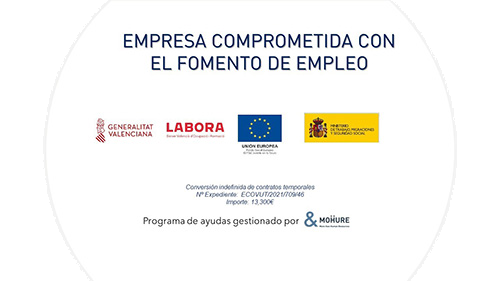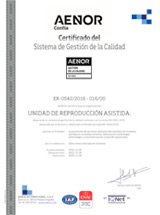Medicine and pregnancy: Until such a time as a new family stops being just an illusion and starts to become a reality there are a number of factors which influence the process. Some, such as our genetic disposition relating to our own fertility are impossible to control. Others, including some biological factors, can and should comply with certain guidelines to avoid generating unwanted problems. Among which, medicines are undoubtedly one of the factors which can affect us to a greater extent, therefore it makes sense to know which medicines are worth avoiding when a person is looking to become pregnant.
To achieve pregnancy, in addition to controlling our emotional and nutritional needs and those habits we may have adopted throughout our lives, it is necessary to learn what things benefit us and what things it’s best to avoid completely. Many medicines, as beneficial as they may seem in treating certain ailments can have a secondary effect on our fertility’s capacity.
The first thing to take into account is that in the field of conception, as in many other ambits, information is everything. And such information should be personalized and should always flow from specialized sources: doctors, gynaecologists, clinics or hospitals; are the only sources which can analyse the needs of each individual case.
Obviously, it’s necessary to highlight that when we talk about fertility it’s not something which solely affects women: the medicine which men take while they are in the process of looking to achieve conception can also affect their fertility, so therefore both parties should be careful, as some compounds can decrease sperm count.
How can medicine affect fertility?
Some of the most common medicines, available in any chemist and freely available in general, can be really harmful for conception. Compounds such as Ibuprofen which many people take without a medical prescription, could produce an inhibition in ovulation or even during the first stages of pregnancy, hindering seriously the embryo’s formation.
Other active substances such as corticoesteroids, used extensively in people with asthma ,can require a modification in terms of dosage (or even its substitution) during pregnancy and even before it.
As obvious as it may seem, contraceptive pills are the first thing which should be abandoned. As a rule, it’s advisable to stop taking them about three months before starting to look to become pregnant, so that the menstrual cycle stabilizes itself and once this happens, the process can begin. Even so, it’s possible to achieve pregnancy in the cycle immediately after stopping contraceptive use.
In general, the rule of thumb which any doctor would recommend is to not take any medicine whatsoever should it not be necessary. This axiom, during the pregnancy and conception stages, should be rules set in stone. Therefore, apart from the odd headache, or specific discomfort or ache, anybody with chronic health problems should consult their own specialist as to how to continue with their treatment.
This can affect people with headaches or migranes, a treatment which includes isotretinoin or tetracyclineused in acne treatment – medicines with angiotensin for hypertension, valproic acid– for epilepsy and a multitude of active substances and medicines which are not recommended for people looking to conceive.
Of course, the doctor who individually treats each case has the last word. The vast majority of these treatments have alternatives which offer improved guarantees during each stage, which can avoid serious problems and won’t alter that dream of forming a family.
In UR International, your assisted reproduction clinic in Spain, you can be sure to rely on the best professionals available to advise you on the best possible option for you along each and every step of the way.











